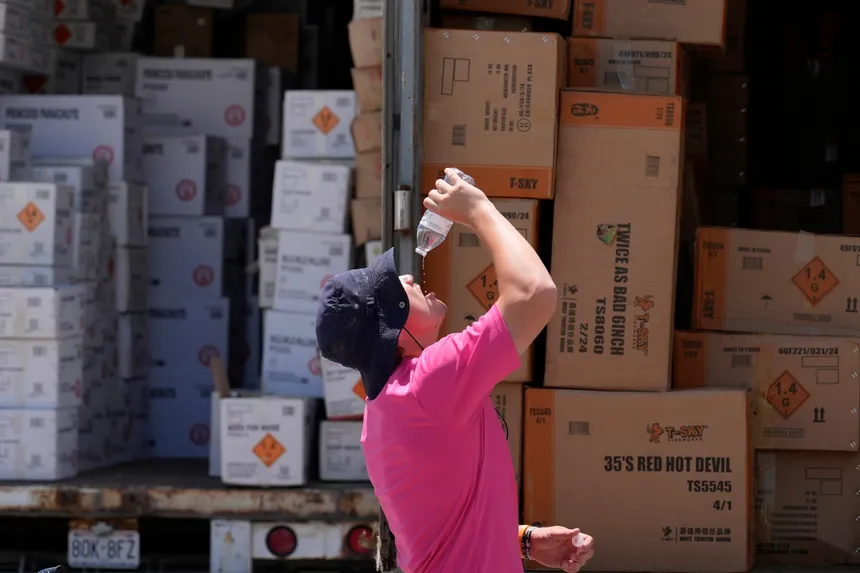A scorching heatwave is gripping the western United States, threatening to unleash a series of devastating consequences from power outages to intense wildfires, as the nation prepares to mark the Fourth of July. Sweltering temperatures are expected to persist for days, with little relief in sight, especially during the hottest part of the day.
Many areas of the country, including nearly 90 million people, are under heat alerts issued by the National Weather Service. California, in particular, is bracing for a brutal heatwave that will likely break records, with temperatures soaring to as high as 127 degrees Fahrenheit in some areas. The eastern parts of the state will also experience extreme heat, with temperatures hovering around 110 degrees Fahrenheit through the week and overnight temperatures failing to drop below 70 degrees Fahrenheit.
This prolonged heatwave poses severe health risks to the majority of the population, especially those who are unable to access cooling measures. Public health officials are urging residents and visitors to stay indoors and avoid outdoor activities during the hottest part of the day. Even nighttime offers little respite, as temperatures refuse to cool down, making it essential for people to take precautions to stay safe.
The heatwave has already led to several fires breaking out across the state, with the Thompson fire in Butte county prompting evacuation orders for an unknown number of homes in Oroville. The fire department is at peak staffing levels, preparing for an extremely busy week and summer ahead. The Cal Fire deputy director emphasized that 95% of wildfires in California are human-caused and that the majority of them are preventable. This underscores the importance of prevention and caution during hot weather, as careless activities can rapidly turn disastrous.

The effects of the heatwave will be compounded by the festive atmosphere of the Fourth of July, as many people plan fireworks displays, barbecues, and outdoor celebrations. However, these activities can increase the risk of starting new fires, exacerbating the already dire situation. Fire risks will be extreme, with new ignitions likely to be difficult to contain.
The heatwave is not just a regional issue; it is part of a broader trend of increasingly extreme temperatures due to climate change. Research meteorologists have emphasized that heatwaves are the most directly impacted by human-caused warming, leading to longer-lasting and wider-spread heatwaves. This trend is expected to continue, with the summer of 2024 potentially setting new records.
In the midst of this unrelenting heatwave, officials are urging caution and emphasizing the importance of prevention. As temperatures continue to soar, it is essential for people to stay informed, take necessary precautions, and prioritize their safety.

